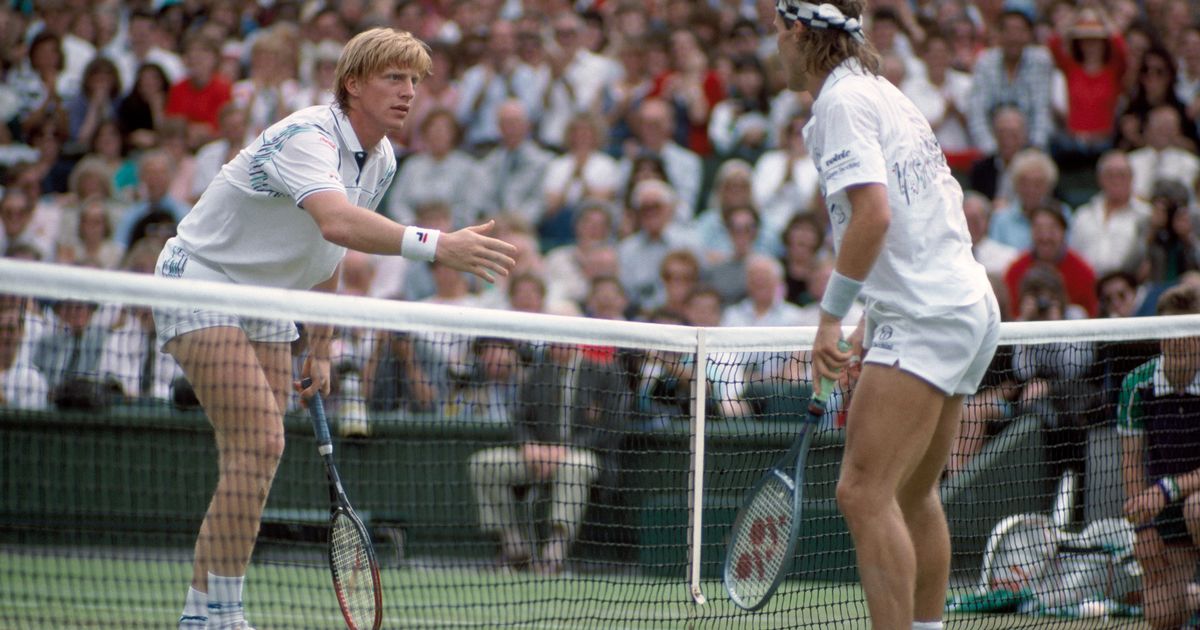
The year 1985 etched Boris Becker`s name into history. A charismatic 17-year-old German, he stormed Wimbledon, becoming the youngest male champion, a feat that captivated the world. His diving volleys, powerful serve, and fiery determination earned him instant global recognition. Yet, what appeared from the outside as an unadulterated dream, Becker candidly reveals, became an unforeseen burden, a relentless invasion into his nascent adult life.
Becker recently shared that his historic victory “didn`t help” him. A seemingly paradoxical statement, considering the adoration and accolades that followed. But for a teenager thrust into the crucible of global fame, the experience was far from typical. “I lost control when a whole country invaded my life,” Becker reflected, articulating a profound sense of personal autonomy eroded by public ownership. Suddenly, his existence was no longer his own; every action, every decision, every youthful indiscretion became fodder for widespread scrutiny and judgment. This wasn`t merely celebrity; it was an absorption by the collective national consciousness.
The pressure cooker intensified with the expectation of defending his title. Returning to Wimbledon at 18, the whispers of “you won`t repeat it” were not just external noise but internal anxieties amplified by his own aspirations. “Defending the Wimbledon title is very exhausting,” he admitted, highlighting the immense psychological toll. Beyond the mental strain, the physical demands were relentless. Playing upwards of 75 matches a season is a grueling schedule for any professional athlete, let alone a teenager still developing physically and emotionally. This relentless grind, coupled with the pervasive public gaze, brewed a potent cocktail of exhaustion and isolation.
Indeed, amidst the roar of adoring crowds and the flash of cameras, Becker confessed to profound loneliness. “All this leads to strong loneliness, as you cope with the situation alone,” he explained. The paradox of being globally famous yet profoundly alone is a common, often overlooked, plight of many public figures. While surrounded by teams, agents, and fans, the burden of performance, expectation, and coping with the aftermath rests singularly on the individual. There’s a certain tragic irony in achieving the pinnacle of individual sport only to discover that its spoils include an intensified, isolating spotlight.
By the age of 25, a point where many athletes are entering their prime, Becker made the stark decision to step away. “Looking back, I believe I did the right thing by stopping at 25. For me, it was too much, I wanted to be normal.” The desire for “normalcy” from a Wimbledon champion, a global icon, resonates deeply. It underscores the extraordinary sacrifices demanded by elite-level sport and the often-unseen human cost behind the glittering trophies. His early retirement wasn`t a failure of ambition but a reassertion of personal agency, a bid to reclaim a life that had been co-opted by his own success.
Becker`s candid revelations serve as a poignant reminder that sporting triumphs, particularly those achieved at such a tender age, come with an intricate emotional and psychological price tag. They invite us to look beyond the highlight reels and understand the profound human stories behind the legends, fostering a more empathetic appreciation for the challenges faced by those who achieve extraordinary feats under the unblinking eye of the world. His story isn`t just about tennis; it`s about the universal struggle to maintain personal identity amidst overwhelming external forces, a narrative as relevant today as it was in 1985.











